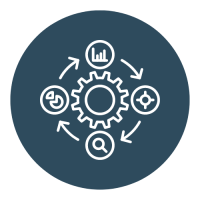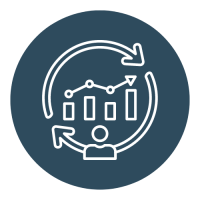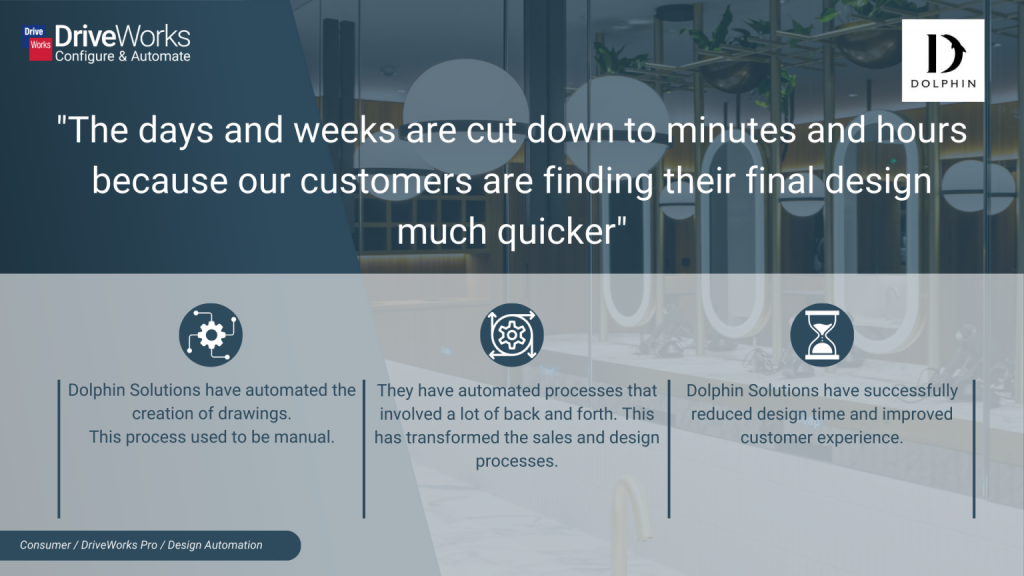
Technology has made huge changes to the way we work. As technological capabilities continue to advance, it can be overwhelming to decide which solutions will work for your organization, your processes, your workforce and most importantly, your customers.
When analysing digital technologies, one of the key considerations for businesses should be: are they scalable and future-proof?
Can functionality be changed as your needs change? Who will use the technology now and in the future? Can knowledge of the technology be shared with others?


Staying Agile and Planning for the Future
Organizations using digital technologies are able to adapt quickly to changes in the market and demands from customers. Agility has always been a key driver of successful business operations but now more than ever, we are seeing the importance of businesses being able to pivot and respond quickly to changing factors. Markets and trends are constantly moving and evolving, bringing new challenges, and new opportunities. It is important that businesses can adapt to these changes quickly and effectively, or risk falling behind. Digital technologies enable businesses to make changes to products and processes easier and faster than ever. The digital technologies you implement will impact how you respond to change now and in the future.
Ensuring your workforce are knowledgeable about any digital tools being introduced, and ensuring they are on board with your digital transformation strategy will ensure successful implementation, maintenance and improvement of your tools and processes. When digital tools become a part of every day operations, employees rely on them and favour them. Digital tools mean information is more easily shared between teams, without relying on the knowledge of one or two people. It’s important the knowledge of digital tools is shared in a similar way too. They shouldn’t be reliant on one person within an organisation. Make sure your digital tools are future proofing by ensuring more than one person within a team knows how to set up, use and maintain the system.
Scalable Digital Strategies
The prospect of creating long-term goals to digitally transform can seem daunting. It’s important to remember you don’t have to make big changes all at once. A scalable approach to digital transformation is often best. Pick a strategy that suits your organization’s current aims, with the ability to scale when appropriate. It’s important to research and experiment, learning from, and building on, your successes.
Digital transformation is not one-size-fits-all. You can do as much, or as little as you like. Starting small is both cost-effective and low-risk. These things could feel like minor adjustments but they often pay off straight away – they are ‘quick wins’. Focusing on initial goals reduces the time and cost required to plan and implement the strategy and also helps with employee engagement. Small changes over a period of time are much easier to accept and adapt to. Breaking down the task makes it more attainable and there’s also a quicker sense of satisfaction. Seeing results sooner boosts attitudes towards digital transformation and increases adoption and acceptance. It’s then easier to build on your digital approach.
Whilst you don’t need to do everything all at once – it is still important to think about your potential future needs when choosing your digital tools. It’s much easier to add to and adapt existing tools, rather than replace them. In your research and planning, consider how you can build on the digital tools you’re investing in at the beginning, how flexible and scalable they are. How can you mould the tools to suit your needs as they change?


Embracing Opportunities
Businesses should be focused on developing and implementing strategies that are flexible, agile, and able to evolve. This means being open to new ideas, experimenting with tools, embracing opportunities and constantly seeking feedback and insights from customers and stakeholders.
Digital transformation has the power to improve processes for employees and customers, resulting in better performance and long-term success for businesses.

Paul Gimbel
DriveWorks Sherpa
“The old saying goes, “change is inevitable” and as a design engineer, I certainly hope it is.
Change is how we create improved products, optimized processes, and enhanced experiences. And since the products and services that we offer are guaranteed to change, we need to ensure that the digital technologies that we use now and in the future to design, sell and support those can change and grow along with our business.”

How are DriveWorks Customers Embracing Technology?
Dolphin Solutions, headquartered in Robertsbridge UK, design and supply a range of products and accessories for commercial washrooms.
Robert Allen, Product Design Manager and main DriveWorks Administrator at Dolphin Solutions, tells us how they have implemented the software.
Dolphin Solutions purchased DriveWorks in 2017 to create an online sales configurator tool that would help them to achieve two key targets:
- Reduce Design Resources
- Create a Great Customer Experience
Find out more about how Dolphin Solutions are automating with DriveWorks here.